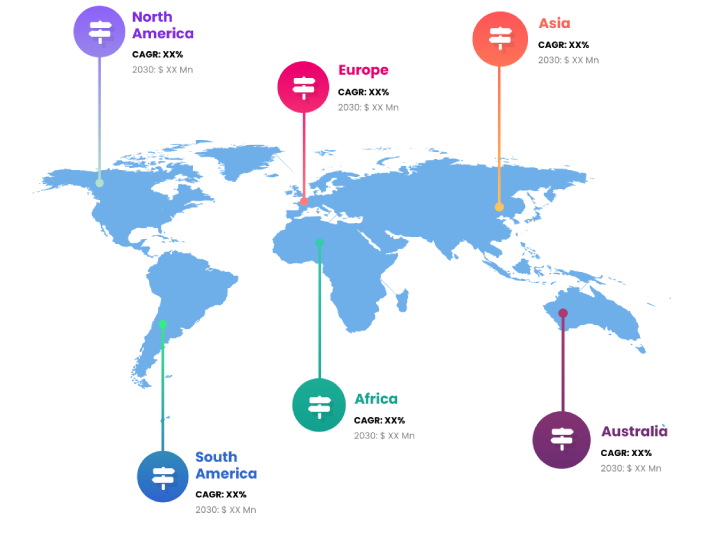Luggage, freight, and other cargo are transported in rigid containers known as air cargo containers or Unit Load Devices (ULD). It is made up of huge, multi-purpose containers, both refrigerated and non-refrigerated. Shipping containers come in a wide range of sizes and shapes to accommodate a wide variety of cargo. These containers should be built to fit into the cargo hold of the aircraft and work with existing cargo handling equipment. As online shopping has become increasingly popular, retailers have felt increased pressure to improve their shipping times and logistics. A growing number of 3PLs recognise the importance of air cargo and are extending their offerings to meet this need. The fastest-growing trade flows between countries are those involving high-value, time-sensitive commodities including food and drink, pharmaceuticals, biological products, computers, and consumer electronics. Demand in the air cargo industry is anticipated to be driven by the growth of total cross-border trade.

Reasons Why
The growth of the air cargo container industry will be spurred by the efforts of developing nations to meet the rising demand for air cargo by transforming and expanding their current airports into cargo terminals. Kenya Airways' ground handling business has historically operated and maintained on-airport cold storage facilities in Nairobi. This simplifies the process of transporting and inspecting perishable food items. The global demand for ULD containers is anticipated to increase as a result of these tendencies.
Due to its widespread use in air cargo transportation, the air cargo container industry from freighter aircraft generated over USD 700 million in 2020. The proliferation of e-commerce and the abundance of electronic product and other commercial item factories in nations like Vietnam, Thailand, China, Japan, Taiwan, and India are all factors that are increasing demand for air cargo. Demand is anticipated to increase throughout the projected period on account of increased deployment of freighter aircraft by airlines including SpiceJet, Garuda Indonesia, and ANA Cargo.
Factors That Hold It Back
The air cargo container business is severely constrained by the ever-changing cost of aviation fuel. Because of factors such as geopolitical instability, supply and demand mismatches, and economic uncertainty, the price of aviation fuel has a direct impact on the cost of shipping freight by air. Increases in the price of oil have the potential to raise airline operating expenses, which in turn could reduce airline profitability and passenger demand for air travel.
This study breaks down the worldwide market for air cargo containers into distinct submarkets, complete with projections for revenue growth and in-depth analyses of current and future market trends. This research provides a comprehensive analysis of the factors driving, hindering, and otherwise impacting the market for air cargo containers. Recent market changes and competitive strategies have been incorporated into the illustration of the competitive landscape in the market, including growth, product launch and development, collaboration, merger, and acquisition. Each subsegment of the air cargo container market is analysed in detail, and important market participants are identified and profiled from a strategic perspective.
The market for air cargo containers around the world can be broken down into two distinct subsegments: refrigerated and non-refrigerated containers. The worldwide air freight container industry is predicted to expand overall, but the refrigerated segment will lead the way. The pharmaceutical industry is currently the most specialised, regulated, and delicate cargo sector in the world. Depending on the pharmaceutical product being transported, temperature-controlled medication and biological goods require refrigerated containers that can maintain temperatures between 2oC and 8oC or well below 0oC. Because of airlines' capacity to expeditiously carry items while simultaneously protecting and maintaining fragile cargo, IATA reports that global airline cargo income for pharmaceuticals surpassed USD 1.4 billion in 2018.
The global market for air cargo containers is segmented into metal and composite submarkets. During the forecast period, the metal category is anticipated to account for the highest proportion of the global air cargo container market. Aluminium or steel are the most common materials for ULD containers, but this might vary depending on the use. Aluminum's low weight and high resistance to corrosion make it a popular material. A cargo container for transport by air is constructed from aluminium extrusions, a fairly thick base sheet, and aluminium side and roof panels. The worldwide market for air cargo containers is segmented into new sales, maintenance & repair, and end-user. The global market for air cargo containers is anticipated to expand across all sales channels, but particularly new sales. New ULD containers will become dominant as the number of aeroplanes in use increases.
Report Coverage
Global Air Cargo Container research report categorizes the market for global based on various segments and regions, forecasts revenue growth, and analyzes trends in each submarket. Global Air Cargo Container report analyses the key growth drivers, opportunities, and challenges influencing the global market. Recent market developments and Air Cargo Container competitive strategies such as expansion, product launch and development, partnership, merger, and acquisition have been included to draw the competitive landscape in the market. The report strategically identifies and profiles the key Air Cargo Container market players and analyses their core competencies in each global market sub-segments.
| REPORT ATTRIBUTES | DETAILS |
|---|---|
| Study Period | 2017-2030 |
| Base Year | 2022 |
| Forecast Period | 2022-2030 |
| Historical Period | 2017-2021 |
| Unit | Value (USD Billion) |
| Key Companies Profiled | Nordisk Aviation, Granger Plastics, Air Cargo Containers LLC, Royal DSM N.V, DokaSch GmbH, Zodiac AirCargo Equipment, Envirotainer, Safran Aerosystems, VRR Aviation, ACL Airshop, Unilode, CHEP, Jettainer, Van Riemsdijk Rotterdam BV (VRR), Satco Inc, Advanced Composite Structures, LLC (Cargo Composites), PalNet GmbH, Others. |
| Segments Covered | • By Product |
| Customization Scope | Free report customization (equivalent to up to 3 analyst working days) with purchase. Addition or alteration to country, regional & segment scope |
Key Points Covered in the Report
- Market Revenue of Air Cargo Container Market from 2021 to 2030.
- Market Forecast for Air Cargo Container Market from 2021 to 2030.
- Regional Market Share and Revenue from 2021 to 2030.
- Country Market share within region from 2021 to 2030.
- Key Type and Application Revenue and forecast.
- Company Market Share Analysis, Air Cargo Container competitive scenario, ranking, and detailed company
profiles. - Market driver, restraints, and detailed COVID-19 impact on Air Cargo Container
Market
Competitive Environment:
The research provides an accurate study of the major organisations and companies operating in the global Air Cargo Container market, along with a comparative evaluation based on their product portfolios, corporate summaries, geographic reach, business plans, Air Cargo Container market shares in specific segments, and SWOT analyses. A detailed analysis of the firms' recent news and developments, such as product development, inventions, joint ventures, partnerships, mergers and acquisitions, strategic alliances, and other activities, is also included in the study. This makes it possible to assess the level of market competition as a whole.
List of Major Market Participants
Nordisk Aviation, Granger Plastics, Air Cargo Containers LLC, Royal DSM N.V, DokaSch GmbH, Zodiac AirCargo Equipment, Envirotainer, Safran Aerosystems, VRR Aviation, ACL Airshop, Unilode, CHEP, Jettainer, Van Riemsdijk Rotterdam BV (VRR), Satco Inc, Advanced Composite Structures, LLC (Cargo Composites), PalNet GmbH, Others.
Primary Target Market
- Market Players of Air Cargo Container
- Investors
- End-users
- Government Authorities
- Consulting And Research Firm
- Venture capitalists
- Third-party knowledge providers
- Value-Added Resellers (VARs)
Market Segment:
This study forecasts global, regional, and country revenue from 2019 to 2030. INFINITIVE DATA EXPERT has segmented the global Air Cargo Container market based on the below-mentioned segments:
Global Air Cargo Container Market, By Type
Refrigerated
Non-Refrigerated
Global Air Cargo Container market, By Material
Metal
Composite
Global Air Cargo Container Market, By End User
New Sales
Maintenance & Repair
Global Air Cargo Container market, Regional Analysis
- Europe: Germany, Uk, France, Italy, Spain, Russia, Rest of Europe
- The Asia Pacific: China,Japan,India,South Korea,Australia,Rest of Asia Pacific
- South America: Brazil, Argentina, Rest of South America
- Middle East & Africa: UAE, Saudi Arabia, Qatar, South Africa, Rest of Middle East & Africa
You will get in-depth and extensive air cargo container market market research and competitor analysis for your business to help you develop more profound insights into the air cargo container market Market.
Through INFINITIVE Data Expert is a professional Market Research services, I will identify the air cargo container market market size, demand & opportunities, growth rate, and target audience with a comprehensive analysis of your competitors.



